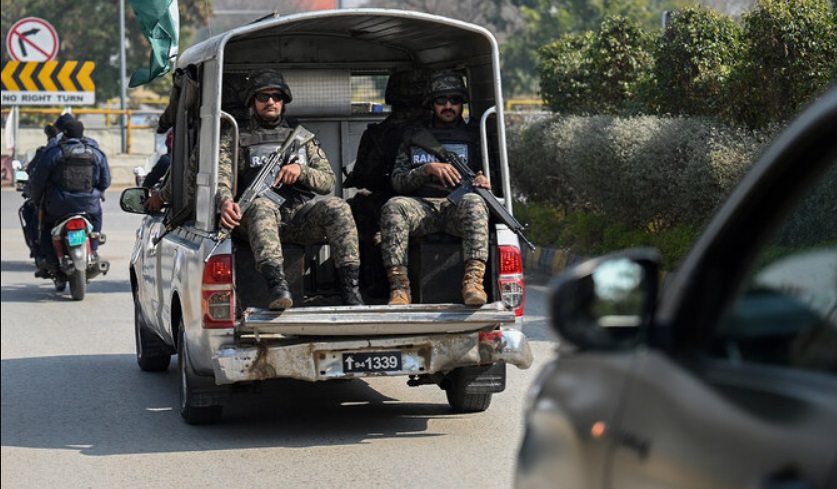Govt. charts road map for Modi’s Baloch policy
As the diplomatic exchange with Pakistan gets sharper by the day, India is discussing concrete steps to put its new policy on raising human rights violations by Pakistan forces in Balochistan into place, and the External Affairs Minister has been consulting former diplomats on its foreign policy implications.
“India has a strong human rights record, and we are naturally concerned about human rights violations in [Balochistan]. How this is expressed in our diplomacy, you will have to wait and see,” said MEA spokesperson Vikas Swarup on Friday.
But while the MEA says it “won’t divulge” its gameplan at the moment, government sources confirmed that the measures under discussion range from enlisting Indian embassies and missions worldwide to raise the issue of rights violations by Pakistan, easing visa restrictions on Balochis visiting India on the lines of the Cabinet’s recent notification on facilities extended to persecuted minorities from neighbouring countries, as well as allowing them more “political” space in India.
U.N. the next step?
In the next few days, officials of the Home Ministry, External Affairs Ministry and PMO are expected to finalise details of announcements to be made on Balochistan. It will also decide whether the Baloch issue will be raised at the U.N. General Assembly this September, even as Pakistan says it intends to raise the violence in Kashmir at the U.N.
“We believe going to the U.N. is the next step for India,” said Azizullah Bugti, leader of the Baloch Republican Party, speaking to The Hindu from Rome. “India must go beyond Mr. Modi’s words and give our voice its support on the diplomatic level at the world stage. We would like that the government of India consider letting us set up a ‘government in exile’,” he added. Sources say that London-based Mir Suleiman Ahmedzai, the descendent of the ‘Khan of Kalat’ — the President of the Baloch council during Partition — is considered by most separatist groups as an acceptable head.
When asked if the measures planned by the government include setting up a Baloch government in exile, similar to the Tibetan government in exile based in Dharamshala, MEA spokesperson Vikas Swarup said last week, “Let us not jump the gun… MEA will do what it has to do because, after all, the people of Pakistan Occupied Kashmir (sic) are also our people,” indicating that India believes a tougher line on Balochistan will dissuade Pakistan from taking a more shrill position on Kashmir.
Other Baloch leaders say they hope to travel to India for a show of strength at a “public rally” in the next few weeks. In Washington, the Indian ambassador Arun Singh and other officials have been invited at an event to mark the 10th anniversary of the killing of Baloch leader Nawab Bugti on Friday. “This year is different because of Prime Minister Modi’s declaration of freedom for Balochistan,” said Ahmar Mustikhan of the American Friends of Balochistan.
Last Saturday, External Affairs Minister Sushma Swaraj held a meeting with retired diplomats who have served as national security advisors, to discuss the PM’s remarks on Balochistan, as well as the likely impact on ties with Pakistan and China, given that Beijing’s infrastructure projects in Balochistan could be affected.
“All the ambassadors suggested continuity and endorsed the PM’s Baloch policy,” a senior government official present at the meeting detailed, referring to PM Modi’s statement that “The time has come when Pakistan shall have to answer to the world for the atrocities committed by it against people in Baluchistan and PoK,” earlier this month.
“Ms. Swaraj made it clear that the step had been considered only after India’s many attempts to reach out to Pakistan had failed,” the official added.
Others present at the meeting said that the former diplomats had made two suggestions. Firstly, that a clear distinction be made between India’s support to Baloch people on the issue of human rights violations by Pakistani forces, and that of PoK, which India has a full claim over. They also said that policy of raising the Balochistan issue can be effective only if it is sustained. “Once we raise the expectations of Baloch groups, they must not be dropped if and when relations with Pakistan improve,” an official said.



